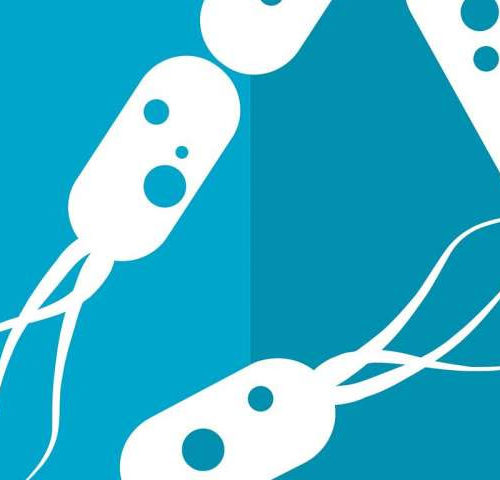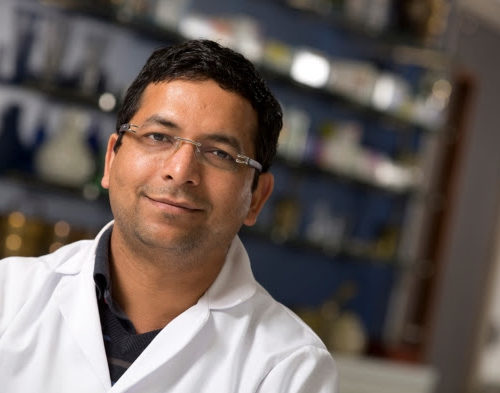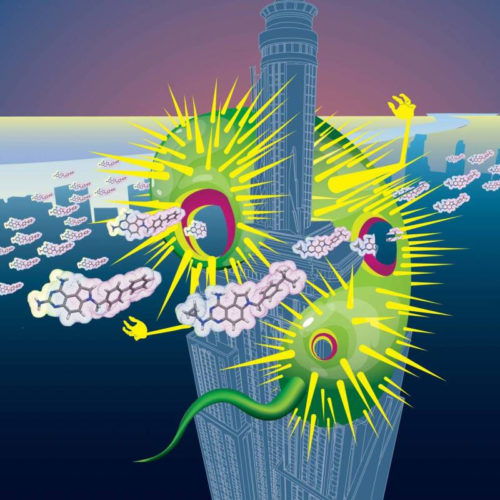George D. Lundberg, MD DISCLOSURES June 05, 2020 Find the latest COVID-19 news and guidance in Medscape’s Coronavirus Resource Center. Death is usually fairly easy to diagnose; cause of death, not so much. In fact, death certificates in the United States and around the world are notoriously wrong. How does this happen? Death certificates are...
Tag: <span>bacterial infections</span>
Molecules that reduce ‘bad’ gut bacteria reverse narrowing of arteries in animal study
by The Scripps Research Institute Scientists at Scripps Research have developed molecules that can remodel the bacterial population of intestines to a healthier state and they have shown—through experiments in mice—that this reduces cholesterol levels and strongly inhibits the thickened-artery condition known as atherosclerosis. The scientists, who report their findings in Nature Biotechnology, created a...
New killing mechanism discovered in ‘game-changing’ antibiotic
Scientists at the University of Liverpool and University of Utrecht have taken another step forward on their quest to develop a viable drug based on teixobactin – a new class of potent natural antibiotic capable of killing superbugs. Research published in Nature Communications provides fundamental new insights into how teixobactins kill bacteria, including the discovery...
Antibiotic-destroying genes widespread in bacteria in soil and on people
Chemical compound restores tetracycline’s effectiveness by blocking bacterial resistance. The latest generation of tetracyclines — a class of powerful, first-line antibiotics — was designed to thwart the two most common ways bacteria resist such drugs. But a new study from researchers at Washington University in St. Louis and the National Institutes of Health (NIH) has...
Princeton’s “poisoned arrow” molecule shreds superbugs from the inside
By Nick Lavars June 03, 2020 How the human species contends with an alarming rise in antibiotic-resistant bacteria is a pressing issue, with some experts predicting these superbugs could kill millions a year by 2050 if we don’t develop new weapons to neutralize the threat. A team of Princeton researchers has put forward a new...
Next frontier in bacterial engineering
PRINT E-MAIL From bacteria-made insulin that obviates the use of animal pancreases to a better understanding of infectious diseases and improved treatments, genetic engineering of bacteria has redefined modern medicine. Yet, serious limitations remain that hamper| progress in numerous other areas. A decades-old bacterial engineering technique called recombineering (recombination-mediated genetic engineering) allows scientists to scarlessly...
How To Avoid Skin Irritation From Face Masks
By Jill Di Donato Face masks unequivocally slow the spread of the coronavirus, according to the Mayo Clinic and the Centers for Disease Control and Prevention. Although the CDC hasn’t addressed how long we’ll be expected to wear face masks in public, some health experts say we should continue wearing them for the next 18...
Your Washing Machine Can Be a Home for Bacteria — What You Should Know
Share on Pinterest Experts say energy-efficient home washing machines operate at lower temperatures, making it easier for bacteria to survive. Getty Images Bacteria were found on laundry cleaned in consumer-grade washing machines at a hospital in Germany. Experts say energy-efficient home washing machines can be a haven for bacteria because they wash clothes at lower...
Study reveals ‘bug wars’ that take place in cystic fibrosis
by eLife Scientists have revealed how common respiratory bugs that cause serious infections in people with cystic fibrosis interact together, according to a new study in eLife. The results provide insights into how bacterial pathogens wrestle each other for territory that could open avenues for new antibacterial treatments. Studies of microbes from mouths, intestines, chronic...
Eliminating Common Bacterial Infection Significantly Decreases Gastric Cancer Risk
While it is well known within the medical community that there is a link between the bacteria Helicobacter pylori (H pylori) and rates of gastric cancer—commonly referred to as stomach cancer—the rates and risk among Americans has been largely understudied. Now, after analyzing records of close to 400,000 patients, researchers in the Perelman School of...





